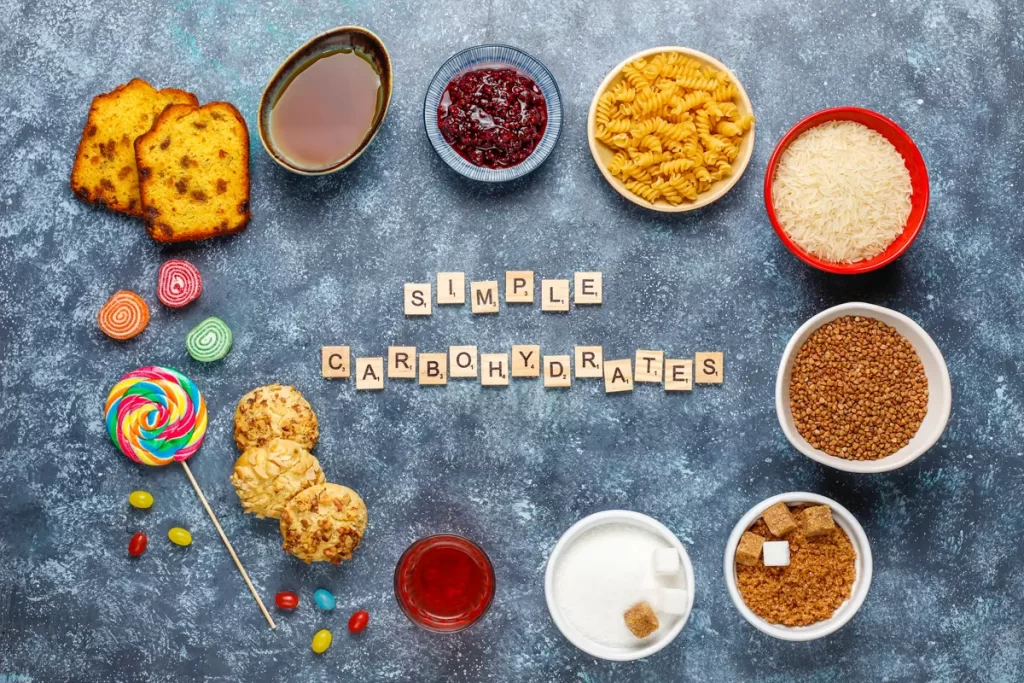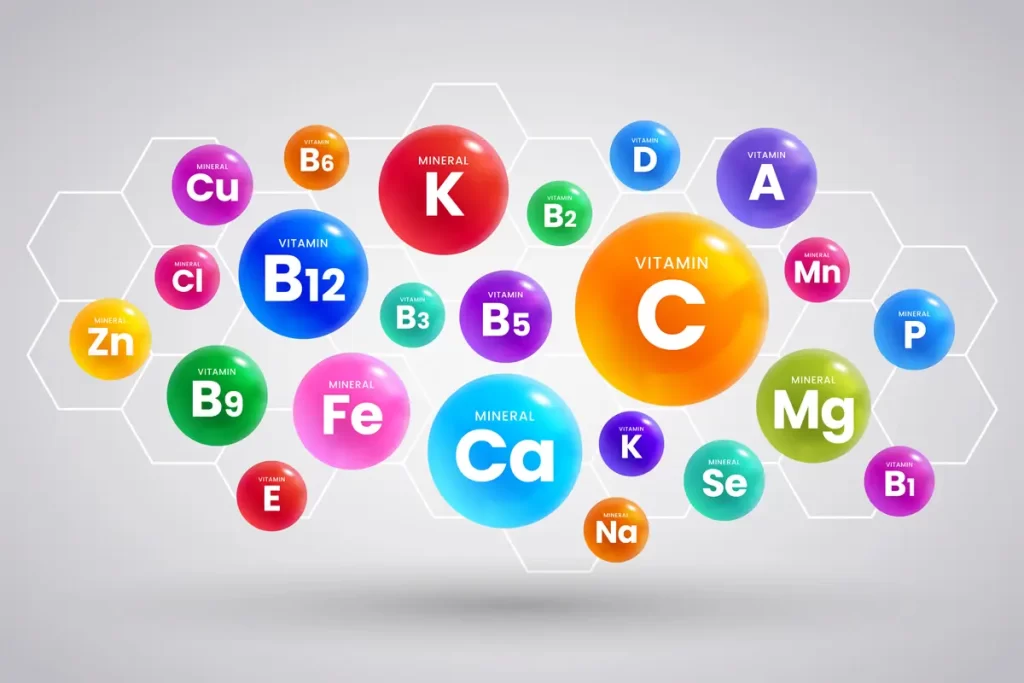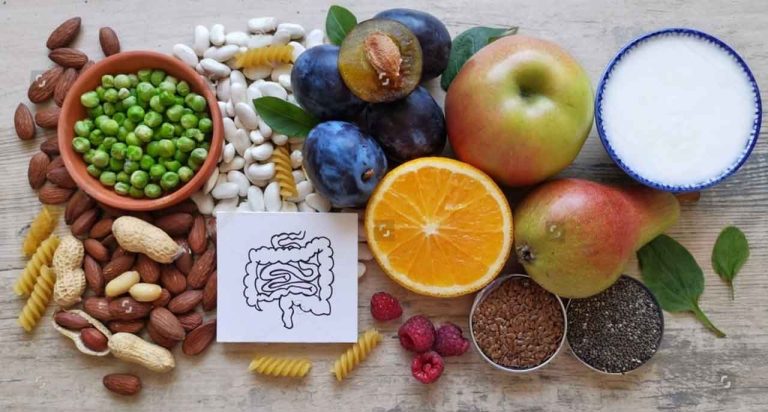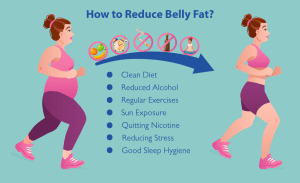Healthy Carbs, Happy Body: A Guide
| All Carbs are not bad |
| Carbs are essential as body’s energy source |
| It is the type of carbs which make the difference |
| Carbohydrates sourced from whole grains, fruits and vegetables are preferable |
| 45% to 60 % of our body’s daily energy needs should be fulfilled through carbs. |
| If weight loss is the goal; carbs reduction should be done systematically |
| We get 4 calories from each gram of carbohydrates |
Are you confused about whether Carbohydrates (carbs for short) are good or bad for your health? With so much conflicting information, it’s easy to feel overwhelmed. Some people swear by low-carb diets, while others believe that carbohydrates are essential for energy and overall well-being. In this post, we’ll explore the science behind carbs and their impact on your health.
- What are carbs?
- The benefits of carbs
- The adverse side of carbs
- How to make sure you're getting the right amount of carbs?
- Carbs and weight loss
- Choosing Healthy Carbs
- Headaches due to carb deprivation
- Weakness due to carb deprivation
- Constipation due to carb deprivation
- Vitamins and minerals due to carb deprivation
- Carbs Provide Fuel To Various Body Systems
- Carbs can be a great addition to any diet, but it's important to make sure that you are getting the right type of carbs. Eating a balanced diet with healthy carbohydrates like fruits, vegetables, and whole grains will provide your body with essential nutrients and energy. On the other hand, processed foods high in refined sugars can lead to weight gain and increased risk of chronic diseases. So when looking at carbs, remember to always opt for nutrient-rich sources rather than empty calories!
What are carbs?
What are carbs?
Carbs are one of the three macronutrients (the others being fat and protein), and they are essential for our health. Carbohydrates are compounds that are made of single or multiple sugars and they comprise atoms of carbon, hydrogen, and oxygen. Carbs provide energy, fiber, and many essential vitamins and minerals. The body’s important systems such as the brain and nervous system prefer depending upon carbohydrates for their energy needs.
There are two types of carbs:
Simple carbs and complex carbs. Simple carbs are made up of simple sugars, while complex carbs are made up of more complex chains of sugars.

Most people think that all carbs are bad for you, but this is not true! Complex carbs (like those found in whole grains, vegetables, and beans) can actually be very good for you. They provide your body with sustained energy and essential nutrients.
Meanwhile, simple carbs (like those found in candy, cookies, and cake) can be less healthy because they cause a quick spike in blood sugar levels followed by a crash. Too much sugar can also lead to weight gain and other health problems.
So, when it comes to carbs, it’s important to focus on quality over quantity. Choose complex carbs like whole grains, vegetables, and beans instead of simple carbs like candy, cookies, or cake. Your body will thank you!
The different types of carbs
There are three different types of carbs: sugar, starch, and fiber.
Sugar is the simplest form of carb and is found in candy, cookies, cake, and soda. Sugar is also added to many processed foods like bread, cereal, and pasta. Too much sugar can lead to weight gain and cavities.
Starch is a complex carb that is found in grains (like wheat and rice), beans, potatoes, and corn. Starch is a good source of energy and essential for proper digestion. However, eating too much starch can cause weight gain.
Fiber is a type of complex carb that cannot be digested by the body. Fiber is found in fruits, vegetables, whole grains, legumes, etc. Fiber helps with bowel regularity and can also help lower cholesterol levels. Fiber is a good carb for weight loss.
The benefits of carbs
Healthy carbs are essential for the body to function. They are the body’s main source of energy and are necessary for proper muscle function. Healthy Carbs also play a role in brain function and help to regulate blood sugar levels. Without carbs, the body would not be able to function properly. Carbs also help prevent constipation and maintain a healthy digestive system. Eating carbs rich in fiber can also help to reduce cholesterol levels and lower the risk of heart disease. It is the soluble fiber that acts effectively upon cholesterol.
Complex carbs such as whole grains, fruits, and vegetables are especially beneficial and provide additional vitamins, minerals, and fiber. Eating complex carbs can also help to keep you feeling full longer. Complex carbs can help you in weight loss.
The adverse side of carbs
How and why carbs affect our health, let’s understand this as well. Carbs can cause blood sugar spikes, which can be detrimental to your health if you have diabetes or are insulin-resistant. Carbs can also cause weight gain and contribute to obesity.
Simple carbs like white bread, white rice, and sugary foods are often considered “empty calories” because they lack essential nutrients. Eating too many of these can lead to nutrient deficiencies.
Eating too many carbs can also cause digestive issues such as bloating, gas, and constipation. High-carb diets may also increase your risk of developing chronic diseases, such as heart disease and diabetes.
Ultra-processed foods like chips and candy often contain a lot of simple carbs, fat, and sodium. Eating too many of these can also lead to health problems.
Enriched refined foods like white bread and pasta are often highly processed and may lack important nutrients, so it’s best to limit your intake of these foods.
How to make sure you’re getting the right amount of carbs?
When it comes to carbs, there is no one-size-fits-all answer. The right amount of carbs for you depends on your individual needs and goals.
If you’re trying to lose weight, you’ll need to eat fewer carbs than someone who is trying to maintain their weight. You will need to focus on eating healthy carbs. And if you’re training for a marathon, you’ll need more carbs than someone who is just trying to stay healthy. You need the best carbs for energy.
The best way to determine how many carbs you need is to experiment and see what works for you. Start by tracking your carb intake for a few days and see how your body responds. Then, make adjustments as needed.
If you’re not sure where to start, the American Diabetes Association recommends that people with diabetes get 45-60% of their calories from carbohydrates. This can be a good starting point for most people. The Dietary Guidelines for Americans advises to include Beans, Whole fruits; dark green, orange, and red vegetables in the daily intake, and it is also recommended that at least half of the grain intake shall of whole grains. Beans, Whole fruits; dark green, orange, and red vegetables It is also recommended that at least half of the grain intake shall be of whole grains. Corn, peas, and potatoes contain starch therefore, those individuals who are diabetic and/or aiming for weight loss can have a monitored portion of these.
Carbs and weight loss
Carbs have been demonized in the weight loss world for years, with low-carb diets being all the rage. However, new research is emerging that shows that carbs may not be as bad as we thought when it comes to weight loss. In fact, healthy carbs may actually help us lose weight and keep it off! You can use the power of healthy and correct carbs to reduce your weight including belly fat.

When it comes to weight loss, this perspective sounds good that, it’s all about calories in vs. calories out. So, if you’re eating more calories than you’re burning, you’re going to gain weight. It doesn’t matter if those calories come from carbs, fat, or protein.
However, some research suggests that the type of calories you eat does matter when it comes to weight loss. One study found that people who ate a low-carb diet lost more weight than those who ate a high-carb diet, even when both groups ate the same number of calories.
So, what’s the deal with carbs and weight loss? It seems that carbs may not be as bad as we thought! If you’re trying to lose weight, pay attention to your overall calorie intake and make sure you’re getting enough protein and fiber. And don’t forget to exercise!
By the way, we get 4 calories from one gram of carbohydrates. Is it not a fun fact to know that there are around 26 to 80 calories in the biscuits we generally eat? Don’t be surprised to know that mathematically to reduce one gram of weight 9 calories must be burned. So by walking 30 minutes every day, you burn 150 calories a day. If you are choosing to lose weight, say 5kg.; you need to create a calorie deficit of about 45000 calories. So, in a weight loss journey, a hybrid mode of calorie-burning and reduction of calorie intake is advisable.
Choosing Healthy Carbs
When it comes to choosing healthy carbs, one of the best ways to do so is to focus on unprocessed or minimally processed whole grains and legumes. These foods contain healthy carbs/fiber, vitamins, minerals, and other nutrients that are important for your health. Examples include whole wheat bread, oatmeal, brown rice, quinoa, beans, lentils, chia seeds, and nuts.
Fruits and vegetables are also good sources of carbohydrates and should be included in your diet. Choose fresh or frozen options whenever possible as canned fruits can be packed with added sugars.
When selecting processed carbs such as cereals or crackers, make sure to opt for brands made with whole-grain ingredients like oats or brown rice. Many kinds of cereal also contain added sugars and artificial ingredients so read the label carefully before making a purchase.
Finally, keep in mind that portion sizes are important when it comes to carbs too! Eating too much of any type of food can lead to weight gain so be mindful of how much you’re eating at every meal.
Headaches due to carb deprivation
Headaches due to carb deprivation are a common symptom of low levels of carbohydrates in the body. When the body does not have enough carbohydrates, it can lead to decreased energy levels, fatigue, and headaches. Low blood sugar levels can also cause headaches as well as confusion, irritability, lightheadedness, and dizziness.

The best way to prevent these types of headaches is by consuming a balanced diet that includes healthy sources of carbohydrates such as fruits, vegetables, and whole grains. Eating regularly throughout the day will also help keep your blood sugar levels stable and avoid dips or spikes that can lead to headaches.
In addition, staying hydrated is important for avoiding dehydration-related headaches. Be sure to drink 8-10 cups of water each day in order to stay hydrated. Finally, if you find yourself experiencing frequent or severe headaches due to carb deprivation, speak with your doctor for advice on how best to manage them.
Weakness due to carb deprivation
Carb deprivation can lead to weakness, as the body needs carbohydrates as a primary source of energy. When the body does not have enough carbohydrates, it is forced to break down proteins and fats for energy, which can lead to fatigue and weakness. This is because carbs are the main fuel used by our bodies during exercise, and without them, we may become fatigued quickly.
In order to prevent this type of weakness, it is important to consume adequate amounts of carbohydrates each day. Eating complex carbs such as whole grains, fruits, and vegetables will help provide long-lasting energy throughout the day. Additionally, eating small frequent meals that contain some form of carbohydrate can help keep blood sugar levels balanced and provide sustained energy.
Finally, if you find yourself feeling weak due to carb deprivation, speak with your doctor for advice on how best to manage it.
Constipation due to carb deprivation
Constipation is a common symptom of carb deprivation, as the body needs dietary carbohydrates to help keep the digestive system functioning properly. Without enough carbs, the body can’t produce enough energy for digestion and elimination. This can lead to constipation, which is characterized by infrequent bowel movements and hard stools.
In order to prevent this type of constipation, it is important to consume adequate amounts of carbohydrates each day. Eating complex carbs such as whole grains, fruits, and vegetables will provide fiber which helps with regularity. Additionally, drinking plenty of fluids throughout the day can help keep stool soft and easy to pass.
Vitamins and minerals due to carb deprivation
When you deprive your body of carbohydrates, it can lead to a decrease in vitamins and minerals due to decreased absorption. This is because the body relies on carbohydrates as an energy source to help absorb and metabolize other nutrients. Without enough carbs, the body may not be able to efficiently use the vitamins and minerals that it is getting from food.

In order to prevent this type of vitamin and mineral deficiency, it is important to consume adequate amounts of carbohydrates each day. Eating complex carbs such as whole grains, fruits, and vegetables will help provide essential vitamins and minerals. Additionally, taking a multivitamin or another supplement can also help ensure that you are getting all of the necessary nutrients.
Carbs Provide Fuel To Various Body Systems
Carbohydrates are essential nutrients that provide energy to various body systems. The primary role of carbohydrates is to provide fuel for the muscles and brain. They are also used to produce glycogen, a storage form of glucose, which is then used by the muscles during exercise and physical activity.
Carbs are also important for digestion as they help break down other nutrients for absorption into the body. Additionally, carbs play an important role in regulating blood sugar levels.
Finally, carbs can help regulate hormones and improve mood. Carbohydrates stimulate the release of serotonin, a neurotransmitter involved in feelings of well-being and happiness.
In short, carbs are an essential nutrient for proper body function and should be included in your diet! Be sure to choose healthy sources such as whole grains, fruits, vegetables, and legumes for optimal health benefits.













